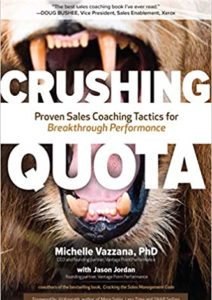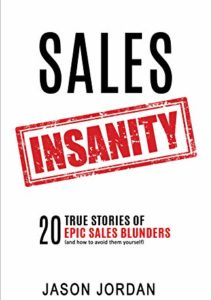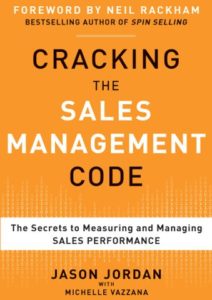For most organizations, the sales pipeline is a very important management tool that they use in many different ways. However, it’s Vantage Point’s observation that the various uses of the sales pipeline often are co-mingled in everyday management practice, and we think that there’s value is pulling those uses apart. The clearer you are about how you’re using your sales pipeline, the more effective you’ll be at accomplishing your goals.
At a minimum, the sales pipeline is used for three distinct purposes: sales forecasting, pipeline reviews, and opportunity coaching. Let’s define each of these terms to clarify the unique value of each.
Sales Forecasting
Forecasting is an obvious use of the sales pipeline. In fact, many companies wouldn’t even have a formal sales pipeline if they didn’t use it to generate forecasts. Sales forecasts use information from today to make more informed decisions about tomorrow. It’s not an activity intended to improve sales performance– it’s intended to improve executive decision-making. But as important as that is, it doesn’t help sellers sell better. No forecasting exercise has ever caused more deals to close in a sales force, because it doesn’t change selling behavior. You’ll know if you’re in a sales forecasting discussion fairly easily, because you’ll say things like: When is this deal likely to close? What is our likelihood of winning it? How big is the deal going to be?
In other words, how much revenue can we expect and when? There’s no doubt that this information is important to management, but it’s not impactful to front-line sellers. So, from a salesperson’s perspective, it’s best to keep sales forecasting to a minimum.
Pipeline Checkups
Another key use of the sales pipeline is the pipeline review. In practice, forecasting and pipeline reviews are often conducted during the same meetings, but they’re not the same thing. And knowing the difference helps you do a better job of both.
A pipeline review is an activity that ensures a sales pipeline is healthy. In the research for our best-selling book Cracking the Sales Management Code, we discovered that companies measure the health of their sales pipelines in three basic ways: Is the sales pipeline the right size, does it have the right contents, and are deals progressing through it as they should?
Size is the first thing managers examine when they look at a sales pipeline, because salespeople need to maintain a large enough pipeline to get them to quota. If the pipeline is anemic, then it’s a sure sign that trouble is brewing and corrective action is needed.
The second measure of a healthy sales pipeline is its contents. Are you trying to sell the right product? Are you pursuing the right customer? Though many managers will say, “As long as my reps hit their quota, I don’t care what’s in their pipeline,” our research reveals that most organizations do care what’s being sold and to whom. If contents of your sales pipeline look out of balance, corrective action is needed too.
And finally, a healthy pipeline will demonstrate that deals are progressing through the sales process as you would expect. Are they moving from stage to stage with predictable success? Or are they getting stuck at a particular stage or falling out of the pipeline altogether? Savvy managers can use the sales pipeline to pinpoint where sales reps are struggling and train or coach them appropriately.
Opportunity Coaching
Of all the uses of a sales pipeline, the most valuable is coaching to the individual opportunities that are currently being pursued. Unlike the pipeline review which assess pipeline health in aggregate, opportunity coaching involves digging into specific opportunities to increase the seller’s likelihood of winning desirable deals. What is the prospect’s business need? How can we satisfy it? Do we even want this piece of business? If so, how can we win it?
Questions such as these can prove invaluable in setting the stage for success early in the deal pursuit and in dislodging bad deals that will waste the seller’s time. But opportunity coaching should not end here. This is also a chance for the manager to coach at a more tactical level – a level we describe as call coaching. This is a discussion about the very next interaction that the salesperson will have with the prospect. Questions might be: What will be the objectives of your next call? What information do you need to gather? What valuable insights can you provide to the buyers?
Conversations like these obviously have the nearest-term impact, because they determine whether the opportunity continues past the next sales call. When good coaching takes place at this tactical level, more deals glide through the pipeline and result in wins. If you had to use the sales pipeline for one purpose only, this would be it. Opportunity coaching is a very high-value management activity that improves sales performance.
The sales pipeline is like the Swiss Army Knife of sales management – it is a versatile tool that can be used for many purposes. It can be used to forecast future performance and enable executive decision-making. It can be used to determine the health of the pipeline and keep salespeople on path to quota. And it can be used as a coaching tool to help sellers win more deals. All of the above serve critical business functions, but they are distinct management activities. As a sales manager, knowing which activity you’re managing will drive the nature of the discussions you should have. And more importantly, the types of outcomes you can expect.
Pipeliner CRM is fully and visually customizable to company’s sales pipeline.Get your free trial of Pipeliner CRM now.





Comments